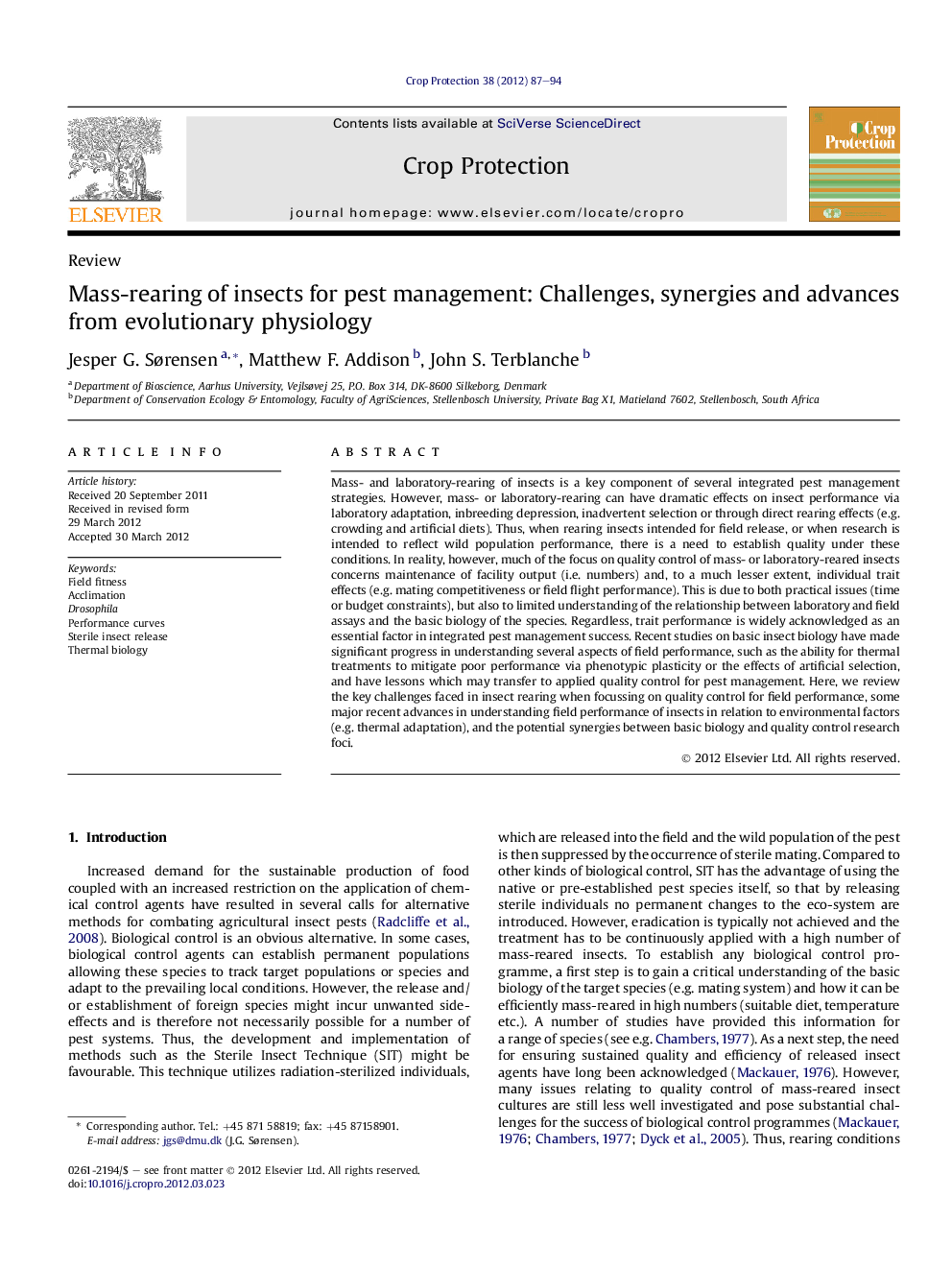| Article ID | Journal | Published Year | Pages | File Type |
|---|---|---|---|---|
| 4506431 | Crop Protection | 2012 | 8 Pages |
Mass- and laboratory-rearing of insects is a key component of several integrated pest management strategies. However, mass- or laboratory-rearing can have dramatic effects on insect performance via laboratory adaptation, inbreeding depression, inadvertent selection or through direct rearing effects (e.g. crowding and artificial diets). Thus, when rearing insects intended for field release, or when research is intended to reflect wild population performance, there is a need to establish quality under these conditions. In reality, however, much of the focus on quality control of mass- or laboratory-reared insects concerns maintenance of facility output (i.e. numbers) and, to a much lesser extent, individual trait effects (e.g. mating competitiveness or field flight performance). This is due to both practical issues (time or budget constraints), but also to limited understanding of the relationship between laboratory and field assays and the basic biology of the species. Regardless, trait performance is widely acknowledged as an essential factor in integrated pest management success. Recent studies on basic insect biology have made significant progress in understanding several aspects of field performance, such as the ability for thermal treatments to mitigate poor performance via phenotypic plasticity or the effects of artificial selection, and have lessons which may transfer to applied quality control for pest management. Here, we review the key challenges faced in insect rearing when focussing on quality control for field performance, some major recent advances in understanding field performance of insects in relation to environmental factors (e.g. thermal adaptation), and the potential synergies between basic biology and quality control research foci.
► Mass- or lab-rearing affects performance of insects intended for field release. ► There is a need for quality control, although quality is poorly defined. ► Recent studies on physiology have found novel ways of improving field performance. ► Basic biology research has lessons relevant for applied quality control. ► These issues are reviewed and discussed in a pest management context.
